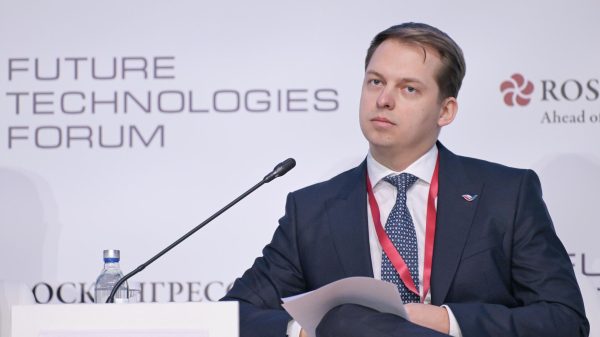The New York Post published allegations about Hunter Biden, right, pictured with Barack Obama and his father, Joe, in 2010
Credit: REUTERS
US Election Article Bar
Facebook’s Sir Nick Clegg was involved in the controversial decision to reduce the social media distribution of a New York Post story which was based on the alleged emails of Joe Biden’s son.
The decision, which has caused uproar with less than three weeks to the US election, was lambasted as politically motivated censorship by senior Republicans, who accused Facebook of "acting as Joe Biden’s PR team".
Facebook’s move was announced on Wednesday by Andy Stone, its policy communications director.
It is understood that the vast majority of decisions on content moderation at Facebook are made automatically by artificial intelligence or comparatively low-paid contract workers.
However, a small number of cases, which are considered culturally, socially, or politically sensitive, are escalated through a chain of executives.
Read more: Analysis: Facebook and Twitter are fast becoming the arbiters of truth
So terrible that Facebook and Twitter took down the story of “Smoking Gun” emails related to Sleepy Joe Biden and his son, Hunter, in the @NYPost. It is only the beginning for them. There is nothing worse than a corrupt politician. REPEAL SECTION 230!!! https://t.co/g1RJFpIVUZ
— Donald J. Trump (@realDonaldTrump) October 14, 2020
Cases go through the vice-president of content policy, and the vice-president of global public policy, and then to Sir Nick, the vice-president of global affairs and communications.
A tiny number of the most difficult cases then reach Mark Zuckerberg, the Facebook chief executive, and Sheryl Sandberg, the chief operating officer.
Decisions about Donald Trump’s posts, including the president’s claims that the coronavirus was less deadly than the flu, are taken at the highest level of the company, including by Sir Nick, Mr Zuckerberg and Ms Sandberg.
It is not known who would have taken the ultimate decision in either of the recent cases.
The Telegraph understands that even decisions about posts by Mr Trump no longer always require Mr Zuckerberg’s sign-off, because the company has now had enough experience at moderating the president. A spokesman for Facebook declined to say what part Sir Nick played in the decision.
The row over Facebook’s role came after the New York Post published details from Hunter Biden’s purported emails, including his business dealings in Ukraine and China, along with personal photographs that included one showing Hunter asleep with a crack pipe (below).
New York Post photo, that appears to show Hunter Biden asleep with a crack pipe, purportedly from his laptop
The newspaper received the information from Rudy Giuliani, Mr Trump’s personal lawyer. It said the information originated from Hunter Biden’s laptops which had been left at a computer repair shop in Delaware. The most controversial email is allegedly from Vadym Pozharskyi, an adviser to the board of Ukrainian energy company Burisma, thanking Hunter "for inviting me to DC and giving an opportunity to meet your father".
Joe Biden has denied any involvement in his son’s business dealings, and his Democratic campaign team said no such meeting ever took place.
The story was also blocked by Twitter, which said it violated rules against posting private information.
Twitter suspended the official account of the Trump campaign for sharing the article, and the account of Kayleigh McEnany, the president’s press secretary, who accused the social media giant of "essentially having me at gunpoint".
Mr Trump said: "It’s going to all end up in a big lawsuit and there are things that can happen that are very severe that I’d rather not see happen, but it’s probably going to have to."
Profile | Hunter Biden
The president suggested repealing section 230, a law that protects social media companies from being sued over content posted on their platforms.
Announcing the action on the New York Post article, Mr Stone said: "This story is eligible to be fact checked by Facebook’s third-party fact checking partners. In the meantime, we are reducing its distribution on our platform."
Jack Dorsey, chief executive of Twitter, said his company’s handling of the situation had been "unacceptable".
He said: "Our communication around our actions on the New York Post article was not great."
Josh Hawley, a Republican senator, said he wanted Facebook and Twitter to answer questions in Congress over the controversy.
He said: "It’s basically Big Tech versus democracy. These tech companies want to control what we read. They want to control journalists in this country. They want to control the news and we just can’t let them."
Read more: Harry de Quetteville: Facebook has crossed a dangerous Rubicon with its latest foray into activism















































Свежие комментарии